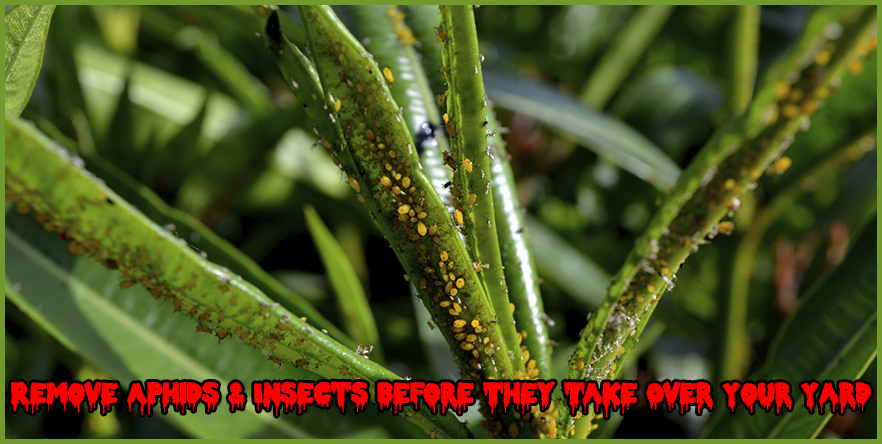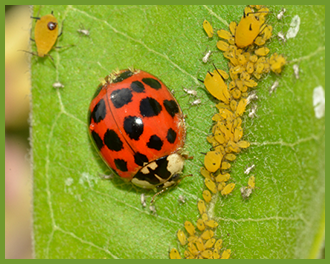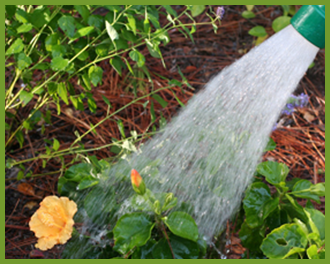
There is no need to stress as bugs are everywhere this time of year and there are ways to prevent, control and remove them. In this blog, we'll be taking a look at the Aphid, which is a sap-sucking insect that are small and can be found in almost any climate, and other insects that are enjoying a free lunch every day on your landscape.
 How To Prevent Aphids & Insects
How To Prevent Aphids & Insects
There are a few ways to prevent aphids and other insects and please remember that every landscape is different. Some practices may not work on your landscape or on the aphids you are trying to prevent.
One option is to attract ladybugs to your landscape. They will eat the aphids and insects that may cause damage to your landscape. Keep in mind that ladybugs are just like humans. They will go to where the food is. You may have some ladybugs one day next day and then the next day aphids and insects show up. There are a few plants that attract ladybugs like the Marigold, Alyssum, and Geranium to name a few. All of these are available at Moon Valley Nurseries locations.
Another way to prevent aphids and insects is companion planting. A few plants to consider at strong smelling herbs (basil, oregano, rosemary etc.) that can deter them and other plants like mustard and nasturtium, which aphids are especially attracted to. Remember, that each and every landscape is different. Some prevention methods may work and some may not work. Always best to do a trial-and-error and to record your results.
 How To Control & Remove Aphids & Insects
How To Control & Remove Aphids & Insects
Let's pretend that you were gone for the weekend and aphids and insects have literally overtaken your landscape. What do you do? Well there are a few options our nursery professionals recommend.
Systemic insecticides
Systemic insecticides are tools usually used when a homeowner has a difficult time removing the aphids and insects from a particular tree or shrub. When applied, the plant will soak up the systemic insecticides in the soil and then it will be transported through the plant. Insects that feed on the plant will then digest the systemic insecticides. We wouldn't recommend using this on garden veggies or fruit and citrus trees.
Remove Ants Colonies
Ants are amazing insects and one of the amazing things they do is that they farm aphids. And no, were are not kidding. Some species of ants will carry the aphids into your trees. If you see this happening, a way to control the aphids is to remove the any colony.
Physical Removal
If buys don't totally creep you out, just reach your hand into the problem area and remove the aphids and insects. Best to always be safe, so wear a pair of gardening gloves.
Water Pressure
This is pretty straight forward. Take the garden hose and spray the aphids and insects off. Now, we do not recommend you do this to young or tender shrubs and trees. This method can be quite effective.
Soap & Water
Put a few tablespoons of dish soap and hot water into a spray bottle. Simply just spray the mixture on the aphids. IT IS IMPORTANT to know that this removal will also harm and possibly kill beneficial insects. We recommend using caution when doing this as you do not want to take out the ladybugs in your landscape.
Moon Valley Nurseries is your one stop shop for all your landscape needs. Our experts have decades worth of experience and they will be able to assist you with any and all projects you may have. Click here to map a nursery near you.
Submit a Comment